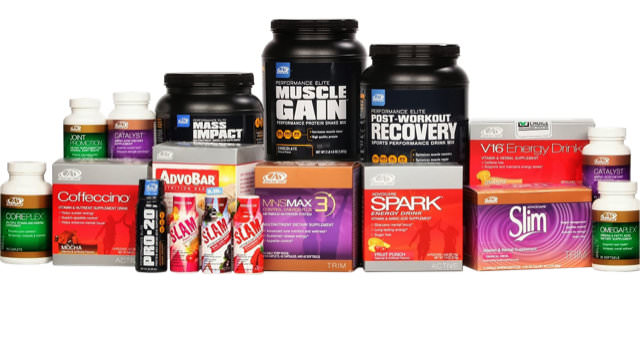AdvoCare, which has numerous ties to sports and pro athletes, has grown rapidly since 2010, when it had 97,000 salespeople — or distributors — nationwide. These independent distributors purchase energy drinks, shakes and supplements from AdvoCare and then market them directly to consumers in a business model called multilevel marketing. The lawsuit says that over the years, AdvoCare has pitched more than nutritional products, offering people a pathway to financial freedom and the ability to earn even more money by recruiting others to join the fold, including encouraging recruits to purchase significant quantities of product themselves. In 2015, the suit says AdvoCare reportedly generated $719 million in net revenue.
According to the lawsuit, “the vast majority of AdvoCare’s distributors lose money. According to AdvoCare’s 2015 Income Disclosure Statement, AdvoCare paid 71.5 percent of its distributors $0 in 2015. It paid 93 percent of its distributors $500 or less. These are gross income numbers that do not account for the money the distributors paid AdvoCare in fees and product purchases. On information and belief, at least 95 percent of AdvoCare’s distributors pay AdvoCare more money than AdvoCare pays them.”
States the lawsuit: “The only people who make money from the AdvoCare pyramid scheme are the very few at the top of the pyramid.”
An AdvoCare spokeswoman told the Morning News that the company “unequivocally [is] not operating a pyramid scheme.”
“We vehemently dispute all of the claims” about the product and the business model, she said.
With the Saints QB leading the way, AdvoCare is using its sports ties to build a nutrition empire. But is the company really pushing false hope?
The lawsuit states that the fact that products are sold by AdvoCare distributors does not prevent the company from being classified as a pyramid scheme. In a classic illegal pyramid scheme setup, the financial success of the company and those at the top almost solely relies on bringing new salespeople in, which creates lucrative networks of salespeople that funnel money to those at the top.
According to the Morning News and the lawsuit, Ranieri joined AdvoCare as a distributor in 2007 and paid AdvoCare between $20,000 and $25,000 in fees and product purchases between 2007 and January 2016. While serving as a distributor, “Ranieri received approximately $5,000 in payments from AdvoCare,” the suit said.
Ranieri was “unable to make many retail sales, and she lost money in the AdvoCare scheme even considering retail sales,” the suit said. AdvoCare terminated Ranieri for failure to pay annual fees in or about January 2016.
Cornelius joined AdvoCare as a distributor in February 2014 and paid AdvoCare about $12,000 in fees and product purchases between February 2014 and February 2016, the lawsuit states. She received about $3,000 from AdvoCare over this same period, the lawsuit said. She eventually was “locked out” of the website she used to sell the product.
As AdvoCare grew over the years, it signed dozens of high-profile athletes as endorsers, including most prominently New Orleans Saints quarterback Drew Brees. The lawsuit alleges that if distributors receive questions about whether Advocare is a pyramid scheme, they are taught to say that the company sells real products, distributors can earn as much as they want, and that Brees would not associate himself with a pyramid scheme.
The lawsuit also cites reporting from an Outside the Lines/ESPN The Magazine investigation last year: that profitable retail sales were rare, that some distributors didn’t make money, and that AdvoCare denied being a pyramid scheme.
According the Morning News, AdvoCare spokeswoman Lindsay Bomar said she could not comment on the specifics of the lawsuit but said the company offers to repurchase unsold products from distributors at full price.
Also, she told the newspaper that before the company changed its policy last year, the only way to get product discounts was to sign up as a distributor. She said some consumers who mainly wanted to use the product, but not turn it into a sales business, were included in the income disclosure statement.
The company has since created a category of “preferred” customers who can get discounts without becoming distributors.
In addition, she said distributors’ compensation is totally based on the amount of product sold. Merely bringing in a new recruit does not change the distributors’ compensation, she said.
Also named as defendants in the lawsuit are Jenny Donnelly of Portland, Oregon; Tyler DeBerry of Tucson, Arizona; Wesley Bewley of Bee Cave, Texas; Daniel McDaniel of Coppell, Texas; Dawn Anderson Funk of Cincinnati, Ohio; and Crystal Thurber, address not listed, who owns a website called Work With Champions.
In addition to AdvoCare advertising that has run on ESPN properties, AdvoCare maintains a multi-event relationship with ESPN for basketball and football that has in the past included the NCAA basketball tournament called the AdvoCare Invitational and football’s AdvoCare V100 Texas Bowl, both owned and broadcast by ESPN.
Source: www.espn.com




